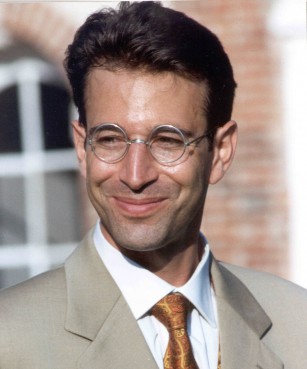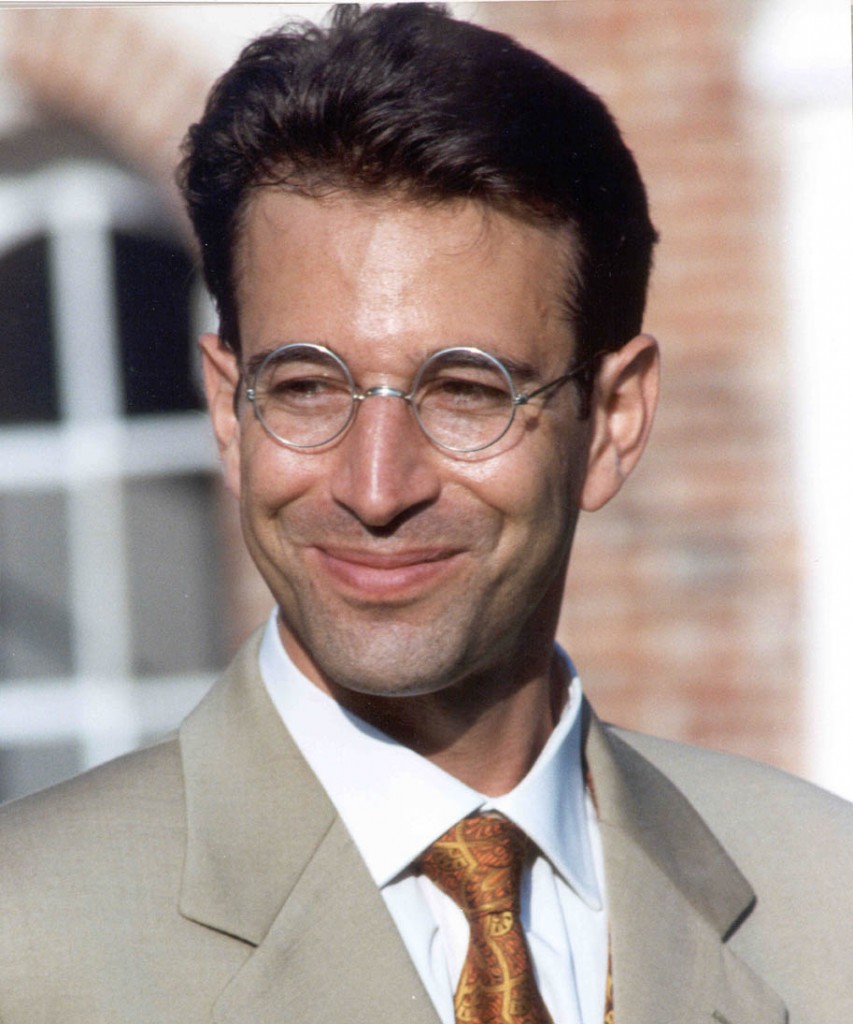
Daniel Pearl was killed in 2002 in Pakistan while on assignment for The Wall Street Journal. Pearl, who was Jewish, was posthumously baptized by the Church of Jesus Christ of Latter-day Saints.
(RNS) A simmering interreligious controversy resurfaced recently with the news that the Church of Jesus Christ of Latter-day Saints had posthumously “baptized” a number of deceased Jews, including Daniel Pearl, Anne Frank, the parents of Nazi hunter Simon Wiesenthal, and evidently an unknown number of others.
The case of Mr. Pearl is particularly revealing, and holds important questions for Americans’ ongoing experiment in religious pluralism.
Pearl, while on assignment for The Wall Street Journal, was beheaded in 2002 by a radical Pakistani group connected to al-Qaida. Moments before his death, he declared: “My father is Jewish, my mother is Jewish, I am Jewish. My family follows Judaism.”
This personal avowal prompted his parents to edit a book, I am Jewish: Personal Reflections Inspired by the Last Words of Daniel Pearl. Dozens of contributors wrote how Daniel’s dying testimony deeply resonated with their own Jewish identities.
Pearl’s Mormon “baptism” through a proxy “stand-in” on June 1, 2011 can seem laughable to non-Mormons who find such rituals meaningless. To others, such secretive rituals seem arrogant. For Jews who understand that Jewishness is communal and that the loss of any member is a loss for all Jews, the LDS practice of posthumously baptizing Jews _ especially Jews who were murdered while proclaiming their Jewishness _ feels like liturgical grave robbing.
The practice has been rejected by the overwhelming majority of Christians because baptism is an initiation into the Christian community based on the free choice of an individual or a child’s parents. At its core, baptism is a public commitment to live a Christian life.
Mormons, who believe that baptism is necessary for salvation, feel their proxy ceremonies give the deceased person one last chance to accept Jesus Christ, even in death. They particularly want to extend this post-mortem “invitation” to their relatives and ancestors.
Mormons explain that while they record the dates of the various rites they perform on behalf of the dead, they don’t really know whether their invitations to Christ have been accepted.
Christians who are aware of the long history of forced Christian baptisms of Jews find the LDS practice disturbingly similar, although Mormons argue that no coercion is involved. Indeed, the practice of posthumous baptism, along with other distinctive beliefs and practices, lead many to conclude that Mormonism should not be considered a Christian community per se but a separate (though related) religious tradition.
Mormonism is a distinctively American religious movement with many admirable features. Yet proxy baptisms wound the American experiment in religious pluralism.
The Constitution enables a diverse array of spiritual traditions to flourish; all can freely exercise their own traditions, so long as they do not infringe on the free exercise of others or threaten the common good. But this American religious pluralism implies the need for different religious communities to respect each other’s boundaries and sensibilities.
Perhaps LDS elders felt this to some degree when they agreed in 1995 to stop posthumously baptizing Jewish Holocaust victims “out of respect for a group of people unique in all of history.”
However, the case of Daniel Pearl shows that the problems of proxy baptism aren’t limited to Holocaust victims. Because of Judaism’s communal sense of identity, performing this ritual for any Jews without their community’s consent raises basic questions of fairness and respect.
It took Christianity five centuries or more to define key doctrines about Jesus Christ, and it took rabbinic Judaism many centuries to become the normative way of being Jewish. The spiritual customs of all living religious traditions evolve over time, and perhaps it is time for Mormons to carefully reassess this particular practice, as it has others in the past.
Or maybe people of faith who proclaim that God is merciful beyond human calculation should simply trust that God’s graciousness is not constrained by ritual ceremonies _ either our own or someone else’s.
(Philip A. Cunningham is professor of theology and director of the Institute for Jewish-Catholic Relations at Saint Joseph’s University in Philadelphia.)





